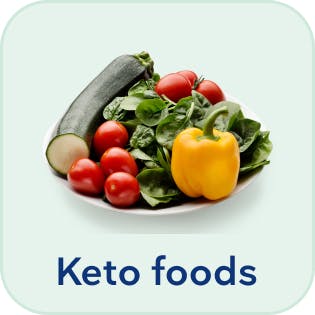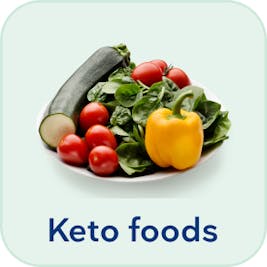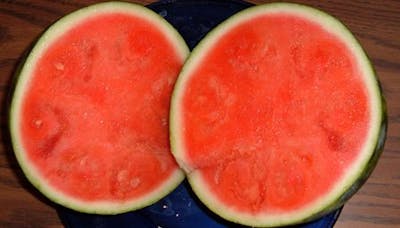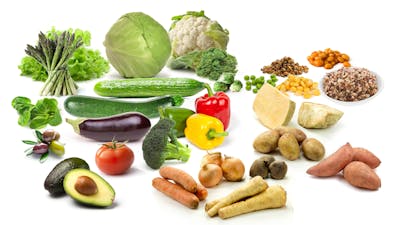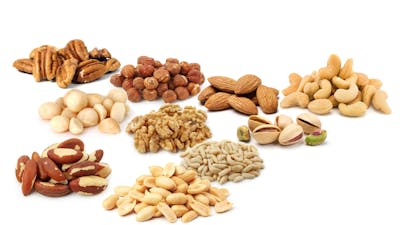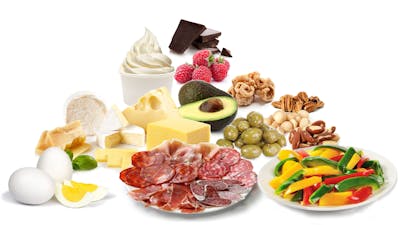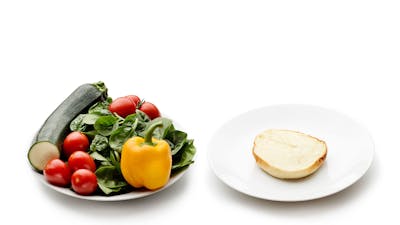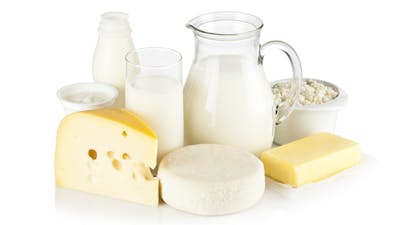Fruits and berries: A keto guide
Most fruits and berries contain quite a lot of carbs. That’s why they taste sweet. They can be seen as nature’s candy.
In general, the sweeter or larger the fruit, the more sugar it contains. On a keto diet, while berries are fine in moderation, it’s best to avoid other fruits.1
Below is a visual guide. On the left are the best keto choices.Key takeaways
Tart is best: Small amounts of strawberries, raspberries, and blackberries are usually fine for a keto diet.View the best berries.
What about Vitamin C?: Does limiting fruit mean limiting nutrition? On keto, you’ll get those important vitamins and minerals elsewhere.
Find out where.
A treat, not a staple: Think of fruit as an occasional treat. Try it with a dollop of unsweetened whipped cream.
See all fruit options.
Below is a visual guide. On the left are the best keto choices.
Berries
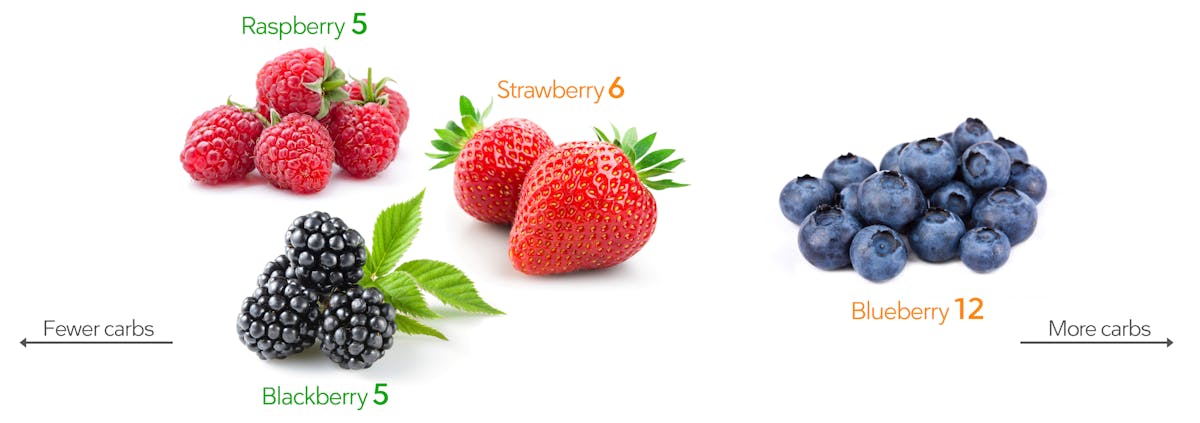


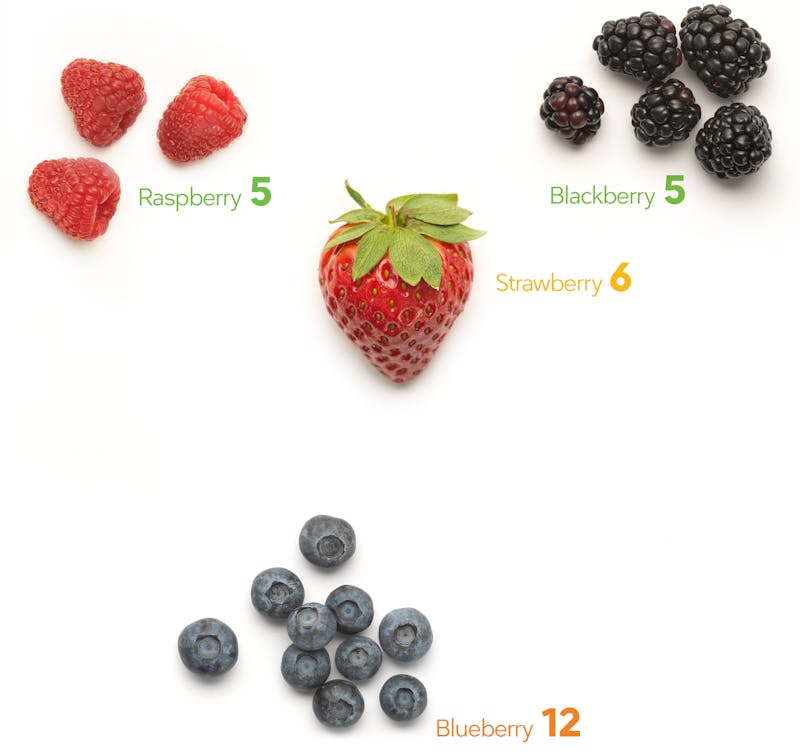



Carbs list

Fruits
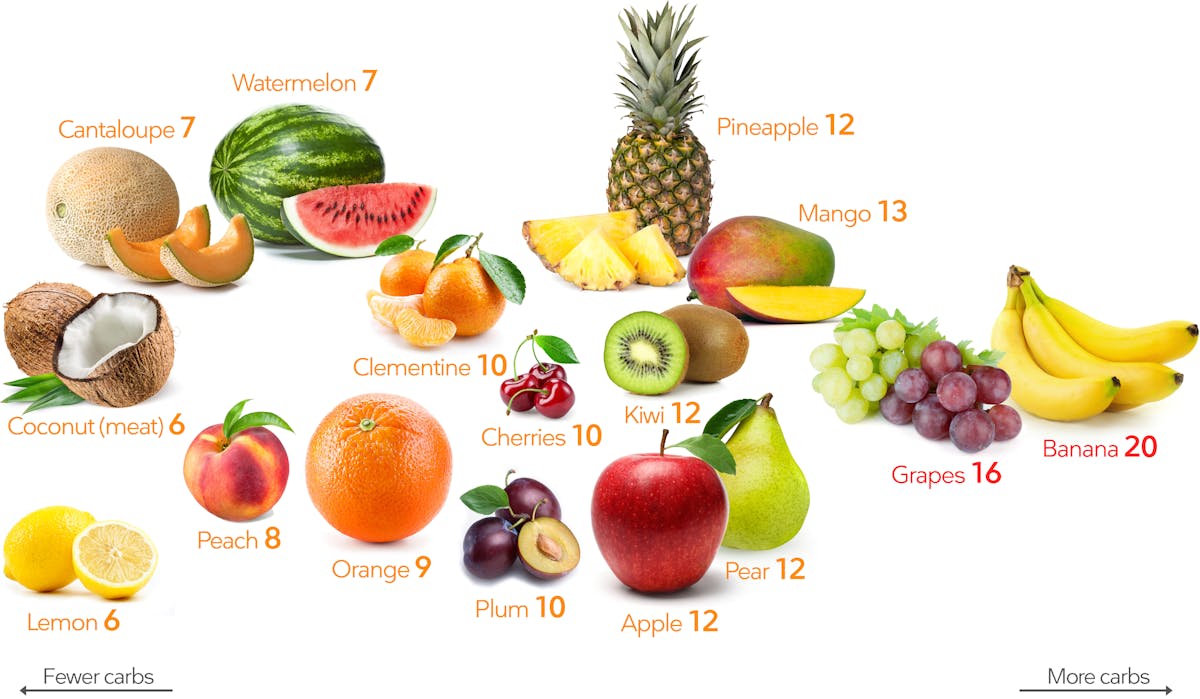


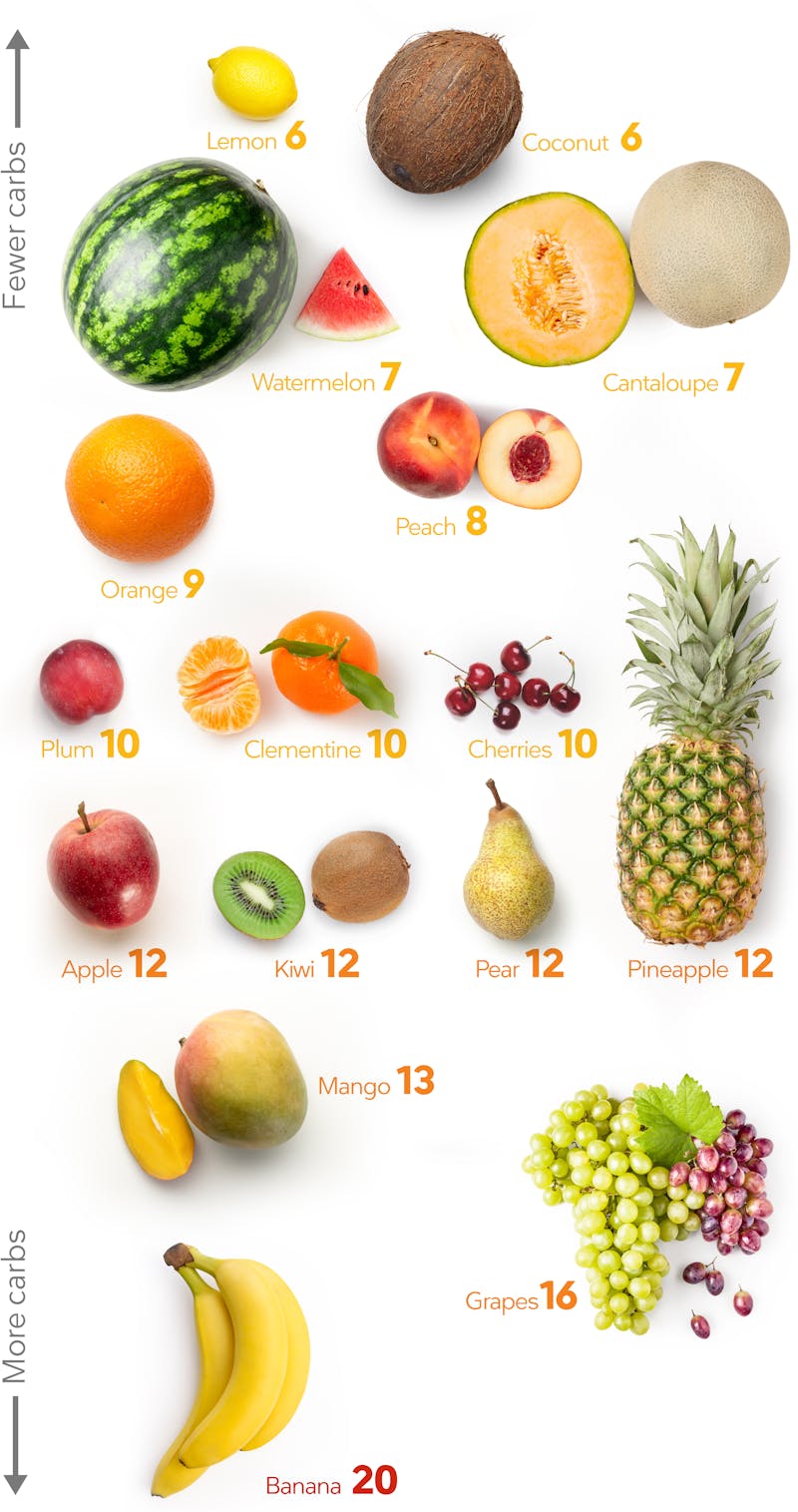



Carbs list
If you eat a large apple (about 25 grams of carbs) or a medium-sized banana (24 grams of carbs), you will have exceeded your daily carb limit on a keto diet.
Fruit = Nature’s candy
On a keto diet you can have some berries every so often and it won’t likely take you out of ketosis. You might even be able to eat a few cherries or a small plum. Be careful, however. And if in doubt, you may want to measure your ketones to learn how fruit affects you.
Don’t we need to eat fruit to get important vitamins and minerals? No, you can get those same nutrients from vegetables.4 In fact, some vegetables, like bell peppers and kale, have more vitamin C than any of the citrus fruits — and a lot less carbs and sugar.5
What fruits can I eat on a ketogenic diet?




From time to time you may be able indulge in a modest amount of fruit as a treat, while still staying in ketosis. Try topping it with a dollop of unsweetened whipped cream.6
Here is a list of the top 10 fruits you can eat on a ketogenic diet, along with the net carbs contained in one serving:
- Raspberries: Half a cup (60 grams) contains 3 grams of carbs.
- Blackberries: Half a cup (70 grams) contains 4 grams of carbs.
- Strawberries: Eight medium-sized (100 grams) contain 6 grams of carbs.
- Plum: One medium-sized (65 grams) contains 7 grams of carbs.
- Kiwi: One medium-sized (70 grams), contains 8 grams of carbs.
- Cherries: Half a cup (75 grams) contains 8 grams of carbs.
- Blueberries: Half a cup (75 grams) contains 9 grams of carbs.
- Clementine: One medium-sized (75 grams) contains 9 grams of carbs.
- Cantaloupe: One cup (160 grams) contains 11 grams of carbs.
- Peach: One medium-sized (150 grams) contains 13 grams of carbs.
Fruit, then and now
Many people ask: “Isn’t eating fruit very natural from an evolutionary perspective?” That may be true, but modern fruit is different from the fruit of the past. Today’s fruit has been selectively bred to maximize yield, decrease fiber, and increase sweet taste.
What fruits and vegetables looked like before
In addition, for most of human history, fruit would have only been available seasonally. Just like primates in natural environments today, ancient humans could have gorged on fruit when available, using the excess carbs to pack on pounds to survive through lean times.7
In short, in modern times some people might find that their bodies cannot handle the excess carbs and sugar in fruit that’s available 365 days a year.8
Berry recipes
Here are some of our best keto recipes for berries, with the lowest amount of carbs per serving.
Similar keto guides
Learn our best tricks & get inspired today!
Start your free trial and get instant access to our movies, documentaries, and video courses on weight loss, sugar addiction, keto for beginners, and much more.
Learn our best tricks & get inspired today!
Start your free trial and get instant access to our movies, documentaries, and video courses on weight loss, sugar addiction, keto for beginners, and much more.
The fewer carbs, the more effective it appears to be for reaching ketosis, losing weight or reversing type 2 diabetes.
This is mainly based on the consistent experience of experienced practitioners, and stories from people trying different levels of carb restriction [weak evidence].
One small study showed that in healthy volunteers, diets of 20 and 50 grams of carbs promoted ketosis with equal success. However, it is not known whether this would be the case in obese individuals or those with metabolic syndrome or type 2 diabetes.
At this point, no randomized controlled trial (RCT) has tested the weight loss or health benefits of two low-carb diets of varying strictness head-to-head. But RCTs of strict low-carb diets appear to generally show better results, compared to RCTs of less strict low-carb diets.
Net carbs = total carbs minus fiber ↩
We define a keto diet as having less than 20 grams of carbs per day:
You can check for yourself in the USDA Food Composition Databases that vegetables generally are as rich in vitamins, minerals, fiber, and other beneficial plant compounds as fruits, if not more. ↩
Nutrition facts for oranges, yellow bell peppers, green bell peppers and kale.
↩Although somewhat controversial, current research suggests that we have little reason to fear saturated fat, including the type found in whole-fat dairy:
Open Heart 2016: Evidence from randomised controlled trials does not support current dietary fat guidelines: a systematic review and meta-analysis [strong evidence]
In fact, it seems that people eating higher-fat dairy products tend to have lower body weight, on average, and possibly fewer metabolic issues:
European Journal of Nutrition 2013: The relationship between high-fat dairy consumption and obesity, cardiovascular, and metabolic disease [weak evidence] ↩
For some interesting research about this, see these references:
International Journal of Primatology 1998: Changes in orangutan caloric intake, energy balance, and ketones in response to fluctuating fruit availability [very weak evidence]
Dr. Christopher S. Bard: Why do humans crave sugary foods? Shouldn’t evolution lead us to crave healthy foods? [overview article; ungraded]
Obesity (Silver Spring) 2013: Redefining metabolic syndrome as a fat storage condition based on studies of comparative physiology [overview article; ungraded] ↩
This may primarily apply for people with obesity and type 2 diabetes (insulin resistance), where studies have demonstrated that a low-carb diet can be helpful:
PLOS ONE 2015: Dietary intervention for overweight and obese adults: comparison of low-carbohydrate and low-fat diets. A meta-analysis [strong evidence]
Diabetes Research and Clinical Practice 2018: Effect of dietary carbohydrate restriction on glycemic control in adults with diabetes: A systematic review and meta-analysis [strong evidence] ↩







